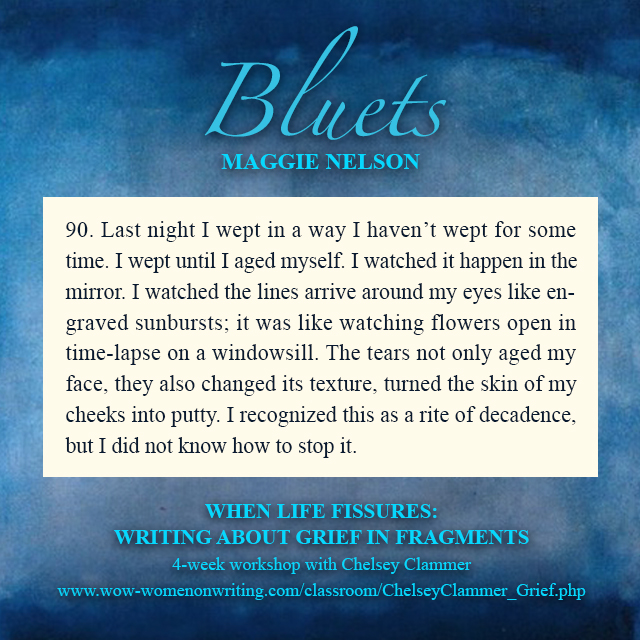by Carole Mertz
Read More »
I’m building on Sue Edwards’s and Nicole Pyle’s recent blogs about taking inventory. For a poet it’s slightly different than for a prose writer, though there are parallels. When I do inventory, I let myself dwell on the accomplishments and I compare them with accomplishments of prior writing periods. For example, I may notice during these past six weeks I’ve not written and completed any “new” poems, but I’ve submitted to more than X number of journals. Or I’ll notice my work shifted heavily from creating new poems to reviewing poetry collections and sending out those reviews.
When unexpected events occur, I inject into my inventory how that event affected my normal output. I ask myself, was that event beneficial or an interruption? I also ask, which was more important, in hindsight, attending to the event, or maintaining my normal or usual output of new material? Sometimes both the event and new output coincide.
As an “event” I might be referring to an editor of a journal asking me to review a file of 12 book reviews and to select the two that best meet the journal’s theme or requirements. Or he might ask me to indicate the two that need the least editing and revision.
Or an event might be the sudden unexpected invitation to judge a contest. Or it might be the approaching deadline for making “Best of the Net” selections for a journal with which I’m affiliated.
Sometimes a poet friend will ask for a review of his or her book, or a colleague will request an interview. Sometimes these out-of-routine events become stimuli for new writing. As ever, it’s up to the individual to establish what (s)he chooses as priorities.
I believe everything we do as writers can be harnessed to good use. It’s important to realize that so-called unproductive periods may have hidden within them new challenges or the generation of new ideas and new composition.
I sense much of a writer’s work takes place at an unconscious level. Therefore it’s important to acknowledge, when taking inventory, that even though outwardly measurable accomplishments may seem to be waning, more subtle growth may be taking place.
* * *
Carole Mertz writes craft essays for Wow! Women on Writing, Working Writer and for blog sites. She is the author of the chapbook Toward a Peeping Sunrise (at Prolific Press) and the poetry collection Color and Line (forthcoming with Kelsay Books). Carole resides with her husband in Parma, Ohio where she teaches classical music while also continuing to study various poetic forms.
~~~~~~~~~~~~~~~~~~~~~~~~~~~~~~~~~~~~~~~~~~~~
Would you like to participate in Friday "Speak Out!"? Email your short posts (under 500 words) about women and writing to: marcia[at]wow-womenonwriting[dot]com for consideration. We look forward to hearing from you!
~~~~~~~~~~~~~~~~~~~~~~~~~~~~~~~~~~~~~~~~~~~~
















